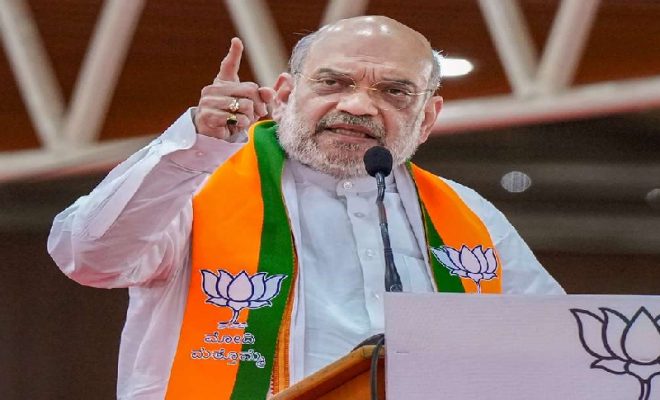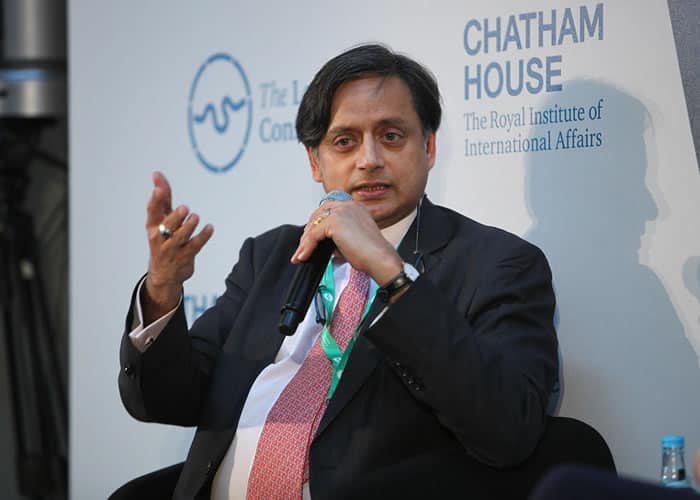Amit Shah initiates strategic Northeast campaign for 2024 elections

Union Home Minister Amit Shah sets out on a key campaign journey, exploring through the politically charged scenes of Manipur and Tripura, as part of the lead-up to the exceedingly expected 2024 Lok Sabha Elections. Shah’s nearness in these districts means the Bharatiya Janata Party’s (BJP) concerted endeavors to solidify its political fortress and amplify its impact in key Northeastern states.
Shah’s campaign agenda is fastidiously made, including an arrangement of open revives, high-level gatherings and vital engagements with nearby political partners. His objective is twofold: to rally back for BJP candidates and to gauge the beat of the voters, subsequently fine-tuning the party’s appointive technique.
Tripura rally and political organizations together
Shah’s campaign journey commences with a dynamic rally in Tripura, a state symbolic of BJP’s developing impression in the Northeast. Tripura’s political scene has seen noteworthy changes in later years, with BJP making significant advances, coming full circle in its discretionary triumphs and ensuing administration.
The rally serves as a stage for Shah to galvanize support for BJP candidates, leveraging the party’s collusions and coalitions to solidify its appointive prospects. Nearby Shah, conspicuous political figures such as Tripura Chief Minister Manik Saha and Tipra Motha chief Pradyot Kishore Manikya Debbarma lend their voices, reaffirming the quality of BJP’s unions and the collective resolve to impel the party’s motivation forward.
Of specific importance is BJP’s collusion with the Indigenous People’s Front of Tripura (IPFT), an organization that underscores the party’s commitment to comprehensive administration and representation of assorted ethnic bunches in the region. This vital union not only upgrades BJP’s discretionary prospects but also underscores its broader vision of cultivating solidarity in the midst of differences.
Manipur Motivation
Transitioning to Manipur, Shah’s motivation takes on a nuanced measurement, as he navigates through the complicated socio-political scene of the state. Manipur, characterized by its wealthy social embroidered artwork and complex ethnic elements, presents both openings and challenges for BJP’s electoral desires.
Shah’s agenda in Manipur is checked by an arrangement of high-level gatherings with Manipur Chief Minister N Biren Singh, BJP authorities, and other key partners. These engagements serve as gatherings for discourse, consideration and key arranging, as the party looks to explore through the complexities of Manipur’s political landscape.
Central to Shah’s plan in Manipur is his unequivocal support for Thounaojam Basanta Kumar Singh, BJP’s candidate for the Inner Manipur constituency. Singh’s candidacy symbolizes BJP’s commitment to cultivating neighborhood administration and engaging grassroots agents to viably address the concerns and yearnings of the voters.
Also Read | PM Modi’s ‘Non-Veg in Sawan’ Comment: An Analysis
Challenges during ethnic distress
Shah’s campaign journey isn’t void of challenges, as Manipur hooks with determined ethnic distress and socio-political changes. The state has been damaged by scattered flare-ups of viciousness, worsened by stewing pressures and authentic grievances.
The later flare-up of savagery on April 13 serves as a calming update of the delicate peace that wins in the locale, underscoring the pressing need for concerted endeavors towards compromise and strife determination. Shah’s nearness in Manipur expect included importance against this background, as he seeks to console the voters of BJP’s commitment to fostering peace, soundness and comprehensive advancement within the locale.
Amit Shah’s campaign journey through Manipur and Tripura typifies the multifaceted nature of BJP’s appointive technique in the Northeast. Against the background of political unions, key engagements, and socio-political challenges, Shah’s nearness reaffirms BJP’s resolve to develop as an imposing political drive in the local area, guided by the standards of comprehensive administration, grassroots strengthening, and socio-economic advancement.



